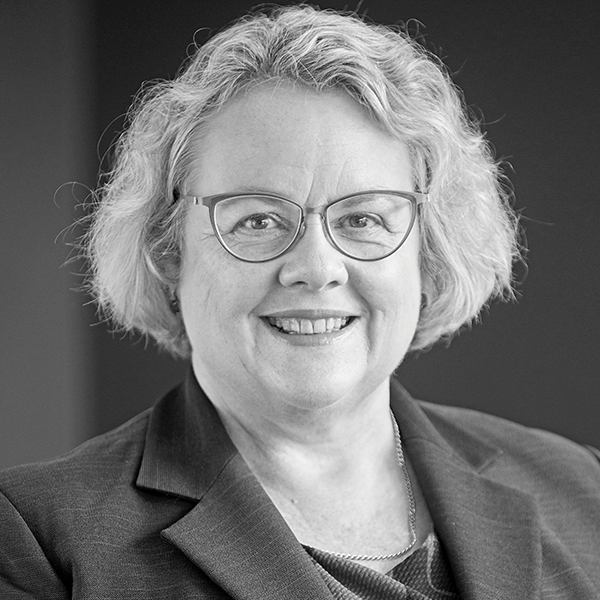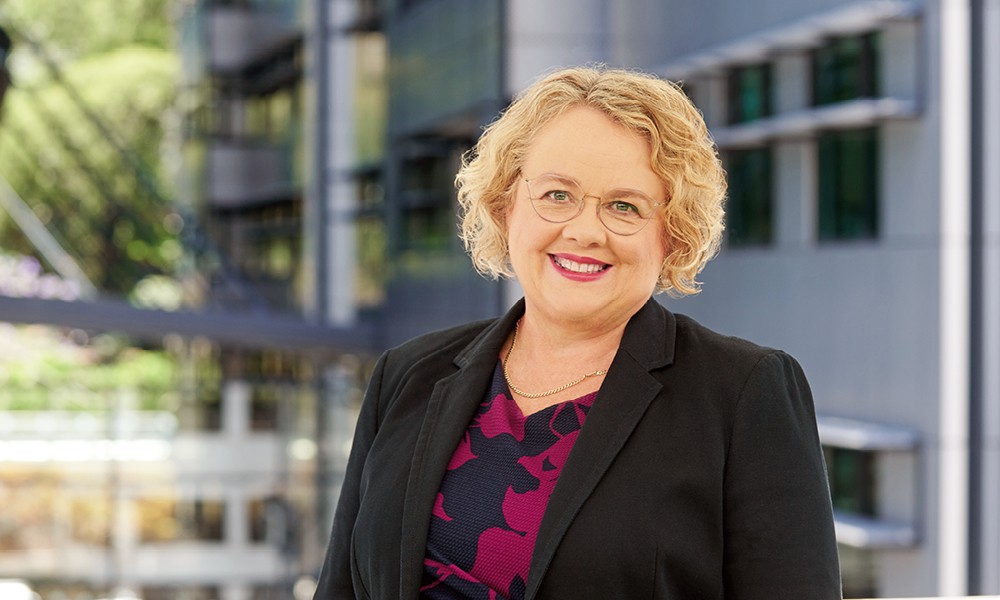In her welcome remarks at the inaugural QLS Legal Profession Dinner, QLS President Elizabeth Shearer reflected on the challenges of the past year and spoke with optimism on the future of the state’s profession.
Read her full speech below.
We can’t talk about 2021 without mentioning 2020.
I had the good fortune not to be President of QLS in 2020. That was a burden borne, with distinction, by Luke Murphy. The job of President of QLS always requires hard work. But in 2020 the demands were unrelenting. Luke’s prodigious capacity for hard work was put to good use in the interests of QLS and our members.
His calm and considered approach, his sound judgement and his perennial good sense ensured QLS made good decisions in a year where we could easily have been blown off course. His collaborative approach and focus on building strong relationships created enormous good will for the Society.
I know Luke thought I went a bit too far when, at the AGM, I compared him to our war time Prime Minister Curtin, and he was a bit worried that I might have called it too soon, when I noted in early December, that unlike Curtin, he survived his term in office.
But, as the world changed around us in 2020, and many of the things we had held to be certain became uncertain, QLS was extremely fortunate to be led by Luke Murphy, and I would like to acknowledge that this evening.
Looking to 2021 and beyond, I am optimistic about the future of the legal profession. Some may say this optimism defies the evidence.
A good advocate could mount a case:
- That the professional lens through which we see and solve problems is outdated,
- That, no matter how much we call ourselves, trusted advisors, the community doesn’t trust us, and
- That, in any event, what we do will be replaced by algorithms.
- There is some evidence for each of these propositions.
To the first, in a world that loves a grand narrative of heroes and villains, our professional lens finds the hero’s feet of clay, and the spark of virtue in the villain. Our best work rarely fits easily into 140 characters. Our clients want us to give them certainty, but mostly we inhabit the terrain where reasonable minds can disagree.
At a societal level, the last few years, have seemed like a time of reckoning; for righting past wrongs that the justice system, in its day to day operation, had been unable to solve. So, perhaps the way we view the world and solve problems is, like the man on the Clapham omnibus, an anachronism, and no longer fit for purpose.
But just as democracy is the worst system of government except for all the others, our professional approach to solving complex problems compares favourably to the alternatives.
The essence of our professional work demands that we:
- gather evidence and data,
- consider our client’s perspective and alternative viewpoints,
- describe complexity,
- explain nuance, and
- ultimately, make a professional judgement, to recommend and inform future action.
This skill set is needed more now than ever, by our clients and by a community grappling with difficult issues. So, the commodity in which we trade remains of value.
But are we the trusted advisors we claim to be? We are used to those surveys that show lawyers towards the bottom of the list for trust.
But something different happened in 2020. This was the year in which, we not only proved our resilience, we also proved our value.
In extraordinary times, our clients turned to their trusted advisor, their solicitor. And we didn’t let them down.
We worked collegiately and collaboratively, with each other, and with our partners in the justice system – the Courts, the Bar, and executive government, to ensure that justice was neither denied, nor unduly delayed.
We did what we always do, we held our duty to the court as paramount, we put our clients’ interests ahead of our own, we provided trusted advice to our clients, and collectively, through QLS we provided trusted advice to our partners in the justice system about the change necessary to meet the moment.
And people noticed. The Governance Institute Ethics Index 2020, showed a sharp increase in community’s perception of lawyers. The net score for lawyers – in the abstract, increased from – 2 to 11. Interestingly, those who actually deal with us, have a much higher opinion of us – their score went from 33 to 50.
My dad always used to say, if you don’t like someone, you just need to get to know them better. He was right. The more people know us, the more they respect us.
We know that more often we will be judged by the public failings of the few, rather than the quiet integrity of the many. But the trust we built, collectively in 2020, provides a sound foundation for the future – especially if more people have the experience of using our services.
With legal needs research showing that only 50% of people with a legal problem get advice, and of those who do, only 30% get advice from a lawyer, there’s a lot of scope for us to have more dealings with more people. The Access to Justice Scorecard survey we conduct through QLS each year consistently highlights two barriers to access to justice – the lack of funding for legal assistance, and the cost of engaging a private lawyer.
Our response as a profession has been two pronged:
- we advocate tirelessly to government for more legal assistance funding and
- we fill some of the gap ourselves by doing pro bono work.
2020 showed us some other options. When the impossible suddenly happened and Court matters were routinely heard by phone or video, we noticed significant cost savings for our clients.
I now have a clear mandate from the solicitors of Queensland, particularly our regional members, to advocate for the continued use of technology in appropriate cases in Courts and Tribunals to remove barriers to access to justice.
2020 also saw us innovate in our practices. I have spoken and written before about turning more of our focus to meeting the everyday legal needs of individuals and small businesses, the missing middle.
We know the value general counsel bring in the corporate world, but we don’t do enough to make such counsel available to individuals and small businesses. General practice doctors have shown us a pathway to name, train for and deliver a vital service to the community. Perhaps some of what we learned from innovating in 2020 will help us on a similar path. Incidentally, General Practice Doctors are very highly rated on the Ethics Index. They score 80.
So, more of us providing more services to meet every day legal needs is not just an access to justice strategy, but one to build trust for lawyers in the community.
But will all be in vain, if someone in Silicon Valley perfects an algorithm to replace us?
We are an old profession, steeped in tradition, but we demonstrate great capacity to use technology.
Each innovation has increased our efficiency and effectiveness – although perhaps some judges would disagree when faced with affidavits annexing multiple face book posts. We have always harnessed the latest technological innovation to deliver more value to our clients.
More important, though, to our survival as a profession are two things:
- First, our ability to live comfortably in the terrain where reasonable minds may disagree, and nevertheless exercise sound professional judgement to recommend action to our clients, and;
- Second, the relationship of trust we build with our clients, that lies at the very heart of what we do, allows them to be confident in accepting our advice, knowing we are putting their interests ahead of our own.
The value that our clients derive from these two things is tangible and unique.
So, even as artificial intelligence automates some parts of our work, there is no artificial wisdom that can supplant our role. That is why I am optimistic for the future of the legal profession. We were tested in 2020 and we passed that test, and now have a stronger foundation from ever from which to build.
I am comforted that for the hard work ahead of us, I will not be on my own. I acknowledge the many people, in this room, who contribute to the profession.
I am truly grateful that our members have placed their trust in me to lead the profession this year.
I am honoured by your trust, and I will do my very best to prove deserving of it.








Share this article